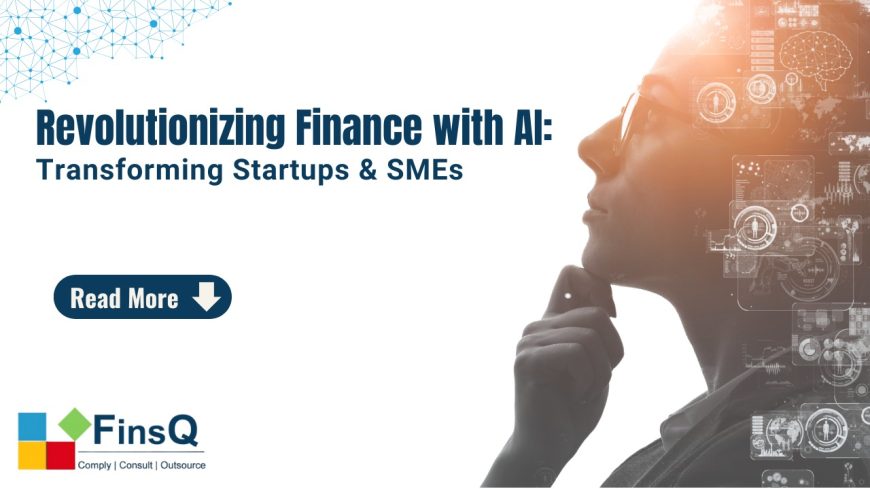Artificial Intelligence (AI) is no longer just a buzzword—it’s transforming the way businesses and consultants, handle different facets of the business. From accounting to forecasting and decision-making, AI is streamlining processes, enhancing accuracy, and providing insights that were once reserved for larger businesses with big budgets. Here’s how AI can benefit your business and how a Virtual CFO can help you integrate these tools without breaking the bank.
1) AI in Accounting: Automating the Mundane
Leave apart the ERP like SAP or Oracle, AI-powered accounting tools like QuickBooks and Xero can automate routine accounting tasks, such as invoicing, reconciliation, and expense tracking. Imagine, even good old Tally is improving its software to add AI-powered tools to help automate different tasks. These tools reduce manual entry, minimize human errors, and ensure that your financial records are always up to date.
- Myth:
AI in accounting is only for large enterprises with complex needs. - Reality:
AI tools are scalable and affordable for startups and SMEs.
2) AI in Forecasting: Predicting Your Financial Future
AI powered tools like Fathom, LivePlan, can analyze historical data and detect patterns, which makes financial forecasting more accurate. By using these tools, businesses can predict cash flow trends, sales, and even potential risks, allowing for better resource allocation and proactive decision-making.
- Myth:
Financial forecasting is only for large companies with big data. - Reality:
Even small datasets can provide meaningful indications (if not predictions).
3) AI in Decision-Making: Turning Data into Actionable Insights
Use data dashboarding tools like PowerBI (with AI visuals), Tableau AI to present the data in a structured format and convert the data into valuable insights. By analyzing your financial statements, transactions, and customer behaviors, these tools can help you create strategies to optimize pricing, reduce costs, or even target high-value customers.
- Myth:
AI decisions are “set it and forget it” and lack human oversight. - Reality:
AI provides recommendations based on data, but the final decisions are always in the hands of business owners and managers. It’s a tool that supports, not replaces, human judgment.
4) AI Integration with CFO Services: Making the Most of It
A professional makes a whole lot of difference here, what tool to use and what data to rely is where a professional with right understanding of your business and the new technology upgradation can help. Try and use the services of a consultant or your CFO or Virtual CFO here. He can integrate AI tools into your financial systems to automate workflows, enhance accuracy, and improve reporting. They also help interpret AI-driven insights to craft financial strategies and ensure they align with your business goals.
- Myth:
Both Virtual CFOs and AI tools are too expensive for me. - Reality:
Virtual CFOs provide expertise without the full-time salary burden, and AI tools are affordable for even the smallest businesses. Together, they offer a cost-effective solution to optimize your financial operations.
Final Thoughts
AI is no longer a futuristic concept—it’s here, and it’s transforming financial management for startups and SMEs. By automating tasks, enhancing forecasting accuracy, and providing valuable insights, AI tools can help you stay competitive and make smarter financial decisions. With the guidance of a CFO, you can integrate these tools into your business operations without the hefty price tag.
Ready to get started? A Virtual CFO can guide you in implementing AI-driven tools that fit your needs and budget. The future of finance is here—embrace it!

